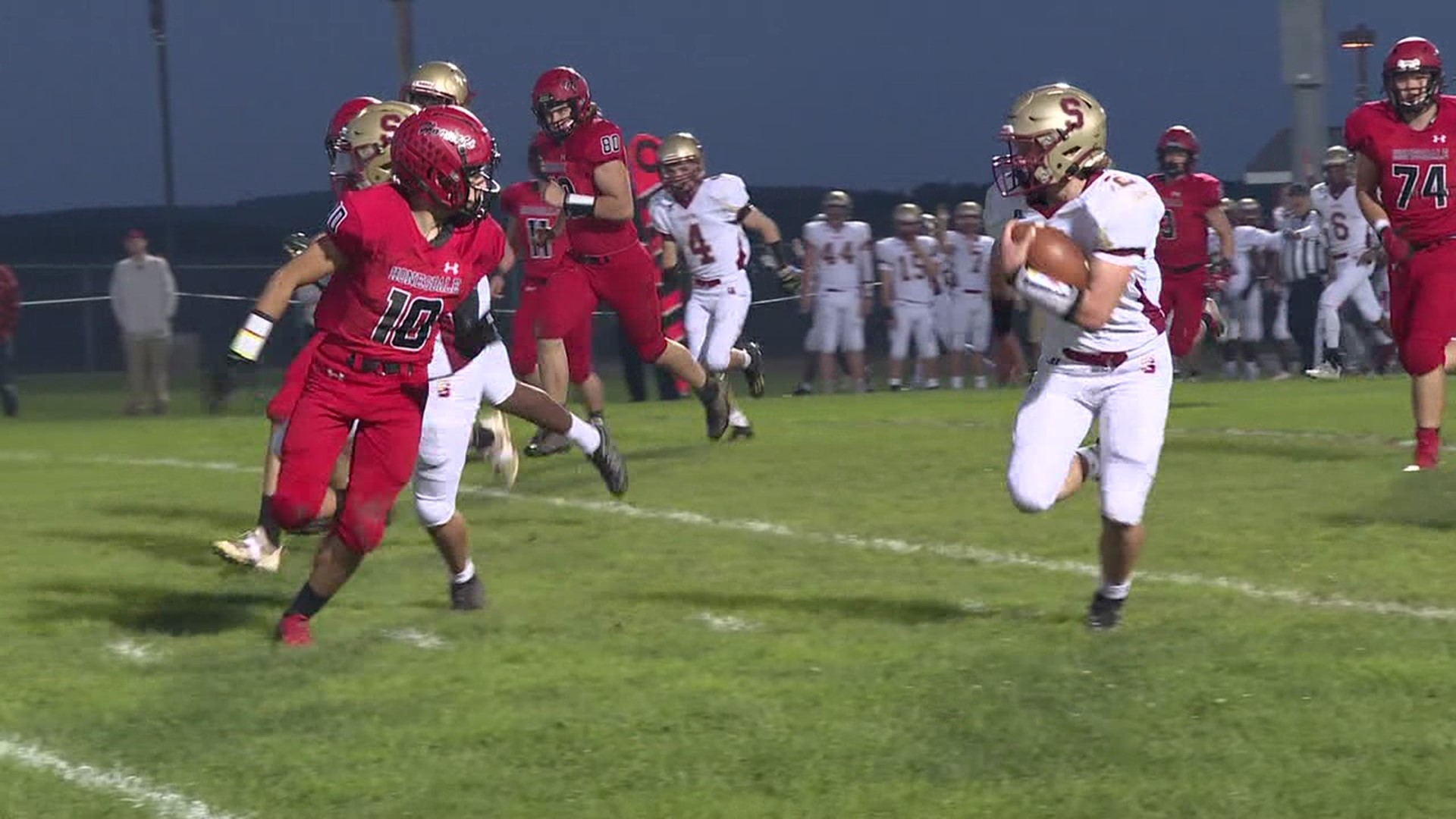SCRANTON, Pa. — Student-athletes are often hailed heroes, both at school and in their communities; many of them become household names long before graduation.
Soon, the recognition and popularity they gain on the field could also get them paid.
For decades, professional athletes have graced our television screens, appearing in ads for everything from shoes, to sports drinks, to soft serve.
Almost three years ago, college athletes won the right to profit from their fame.
Now, the same could apply to high school athletes in Pennsylvania.
This week, the PIAA took the first step toward making a name, image, and likeness policy official.
That would allow high schoolers to appear in, and be paid for, promotions and commercials.
Jacob Martinez is an incoming senior and defensive end on the football team at Scranton High School.
"I feel like it's positive because it gives stuff for kids that are not able to work during the season and actually make money just for stuff on the side," Martinez said. "I feel like it's a positive thing. It's going to be a big thing coming in the future and I look forward to it."
Scranton High School Head Football Coach Steve Shembrays is all for it.
"You're always trying to do whatever you can to benefit yourself in the future and this is a good opportunity, a good stepping stone," Shembrays said. "If they can put some money away to get them into a good school or set themselves up for a job coming up, that could help them out."
Still, Scranton's Athletic Director Ted Anderson said he's disappointed and believes the policy could lead to more recruiting between schools.
It may make sense at the collegiate level, he said, but it's too much responsibility for a high schooler.
"College athletics is big business whether we want to admit it or not and to see that trickle down to high school, these kids are worrying about grades and worrying about lifting and everything else," Anderson said. "Now they're going to have people possibly coming to them and offering them money for some type of service, some type of promotion. Hopefully, they have somebody giving them the right answers or leading them in the right direction."
But would local businesses be interested in partnering with these high school phenoms?
"There might be a tire business or a t-shirt business or anywhere downtown, a food restaurant, that will give a kid a couple bucks to be on a commercial," Shembrays said. "Good for them. Get some exposure for them, get some exposure for a school."
"How many high school kids would sell more hoagies by putting them up on a billboard?" Anderson asked. "It's hard to believe that there would be, but there must be. Otherwise, we wouldn't have this NIL."
It's not clear what kind of regulations PIAA will put in place if the policy is enacted next year. The policy needs two more readings, but the coaches and athletic directors we spoke to expect it to become official.
Check out WNEP’s YouTube channel.

